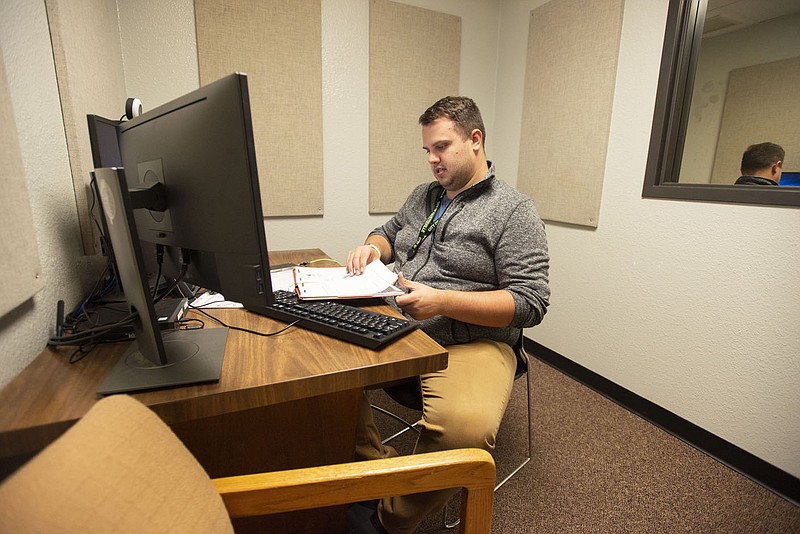FAYETTEVILLE -- The aim of the Police Department's crisis intervention team is to get more people the help they need with fewer people stuck in jail when they don't need to be there, the city's Board of Health heard Wednesday.
The panel of medical professionals received a presentation from Lt. Tim Shepard, Sgt. Patrick Hanby and Steven Greathouse, social worker, with the team. The department has adopted a co-response model that pairs a social worker with an officer to respond to instances of crisis.
The number of referrals the team has made to outside organizations has climbed steadily over the course of more than a year, Greathouse said. He said the team has made 547 referrals since spring of last year. Of those, 361 happened within the last three months, he said.
"We have this officer buy-in. We have people within the department who are recognizing this is a program that's working," Greathouse said. "We're also getting more referrals from community members."
The team has partnered with Hark at the Excellerate Foundation to help people get connected to services, Greathouse said. The nonprofit online resource connects people in a number of areas and quantifies data to help the team members see the greatest needs in the community, he said.
Housing is the biggest barrier residents are running into, Greathouse said. There's also a significant need for financial assistance for rent and utilities, he said. A lot of people are also in need of food, legal representation, mental health and employment services, health care, home goods, clothing, transportation and animal care, Greathouse said.
"Northwest Arkansas is a very resource-rich area," he said. "We have a lot of resources and a lot of really amazing things that we can use to help people in need."
The need is clearly there; it's just a matter of building up the program, Hanby said. It's the team's goal to serve as liaison between services and the people who need them, as well as to help service organizations interact with one another, he said.
"We're extremely resource-dense, but we're communication-poor in a lot of situations," Hanby said.
The department has seen a decline in the number of arrests for offenses such as narcotics or disorderly conduct, Shepard said.
"Now that we actually have a division that works in this field solely, we're seeing our institutional knowledge and expertise increase dramatically and very quickly," he said.
Shepard serves as supervisor to the team that consists of one full-time social worker, a summer intern and an officer. The department plans to hire a second social worker and a second intern soon.
Dr. Gary Berner, chief medical officer with Community Clinic, said the clinic has had success working with the team to find help for patients with acute mental illness.
"The next challenge, for both of us, is to find more social workers," he said.

